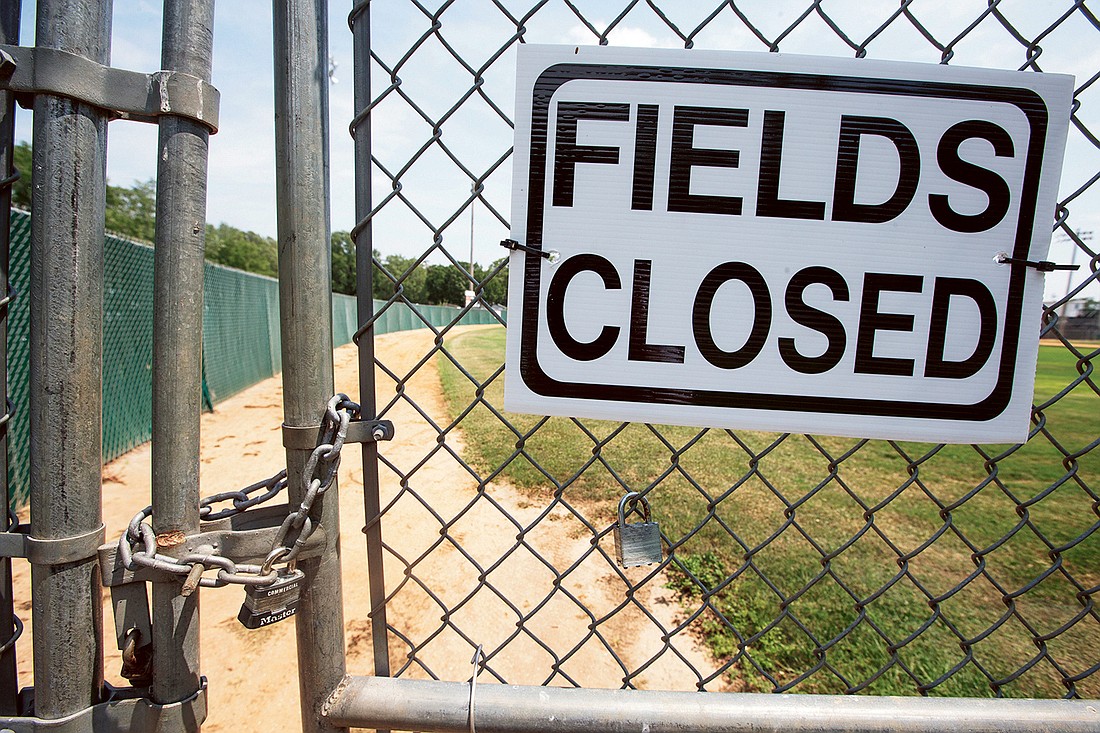- December 18, 2025
-
-
Loading

Loading

In mid-March, the sports world began to shut down.
First it was the NBA, then the MLS. From there, it snowballed — by the time March had ended, there were no sports.
Since then, sports has slowly trickled back, with national leagues such as the National Women’s Soccer League and UFC hosting action in empty arenas. MLS, NBA and MLB plan to start in the next month, and here in Orange County, the Winter Garden Squeeze are back to playing.
Despite things slowly getting back to normal in the sports world, the pandemic continues, and it has rattled many athletes, said Dr. Patrick Cohn — a sports psychologist and owner of Peak Performance Sports LLC in downtown Windermere.
For the past 30 years, Cohn has worked with various athletes ranging from youth sports to NASCAR winners and NHL players, and understands why something as big as the coronavirus would have significant psychological impacts on athletes.
“The big thing I’m hearing from athletes today is returning back, because they’ve had such a layoff,” Cohn said. “I compare it to being out for an injury. When you get injured and you’re out for three months or four months, when you come back, you’re uncertain about a lot of things, which means they have doubt. The doubt is all about, ‘Is my performance going to be there for me? Am I still going to have my position?’
“Certainly there is a lot of apprehension about, ‘What are the new rules? Are fans going to be able to watch?’” he said. “There (are) a lot of unknowns still for a lot of the athletes that haven’t returned yet.”
That fear of the unknown — whether it be from an injury or following a long layoff due to a pandemic — also is linked to negatively affecting an athlete’s confidence.
Many athletes go by unwritten rules or standards for their performance, and when those expectations are not met, it can be devastating to an athlete, Cohn said.
“Those unwritten rules or standards they have for their performance are very high — especially if they’re perfectionists or they’ve had some success,” Cohn said. “When they don’t reach their own standards that are in the back of their own mind, they tend to start questioning themselves.”
The solution to this is simple in nature and involves what Cohn refers to as the confidence-expectations connection. It can be difficult in practice, but if an athlete can work with it, it will help. It’s a technique Cohn has used with athletes such as NASCAR star Kevin Harvick.
“No. 1 is don’t have any expectations about your performance and how good your performance is going to be when you come back, because that can unravel for them,” he said. “There is a big relationship between expectations and confidence. The other piece of it is patience. … Being able to have patience that your performance is going to come back, as well.”
Another issue Cohn has seen, unsurprisingly enough, are athletes who lose motivation.
For many athletes, especially those in sports that go year-round, the pandemic has shut down competitions their normal competitions. A lot of work that was put into a sport now has no payoff as it relates to competition. To add on to issues brought on by the virus, there are high school juniors and other student-athletes who are losing out on time to impress college scouts.
Despite these continuing setbacks, there is a silver lining. Athletes are generally resilient in nature, Cohn said.
“There is a huge effect on athletes, but I think the good news is many athletes are flexible,” Cohn said. “If you have a rain delay, well, you have to deal with it — so they have learned to deal with that stuff. But this is unusual; this is not a rain delay.”
Athletes may be feeling the psychological tolls of being deprived of their sports, but for many non-athletes, the pain is just as real.
Rachel Russell — a licensed mental health counselor at Hope Counseling Clinic in Winter Garden — recalls what sports meant to her sons when they were younger and how important a role sports play in the lives of many people. Sports offer shots of serotonin — what Russell also refers to as “happy pills” — for fans.
“I now have kids who are in their 20s, but when they were teenagers, that was a huge thing,” Russell said. “Every weekend, we’d go watch them play sports. There are so many people missing that, and they didn’t realize that those were some ‘happy pills’ they were taking every day. … And without out that, it almost feels like you’re trudging in the mud a little bit.”
And it goes beyond just individual people — there are entire communities that are based around teams and athletes, Russell said. With COVID-19, you lose out on tangental activities such as family bonding time and the ability to get together with friends to enjoy socializing.
“It’s a big pastime for a lot of people,” Russell said. “It becomes a big social gathering, and with that you’re taking away huge portions of people’s lives. Even the subtlety of parents watching their kids play sports — how it brings a family together — and how we have just been devoid of that.”
While sports begin to trickle back, there still are some ways that people can bond over sports, although they may not be completely conventional, said Jesse Radloff — a licensed mental health counselor at Orlando Health South Seminole Hospital.
Radloff pointed to the rise of competitive e-gaming — specifically the Orlando Health’s partnering with Magic Gaming — in filling a void for people looking for a need for competition.
“It’s not flesh-and-blood sports, but I can go on Twitch, and I can at least watch people compete, Radloff said. “It’s at least something to tide people over.”